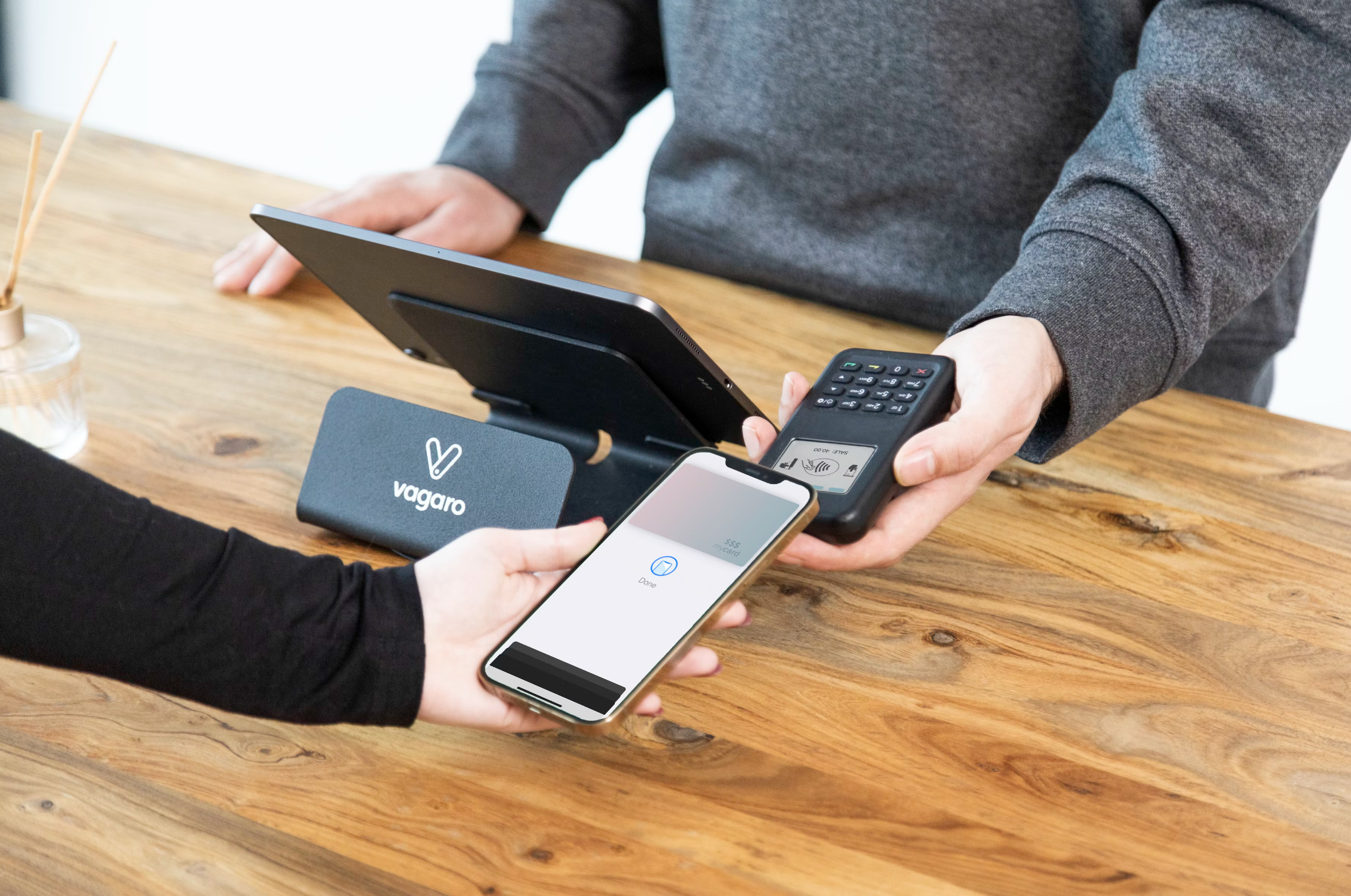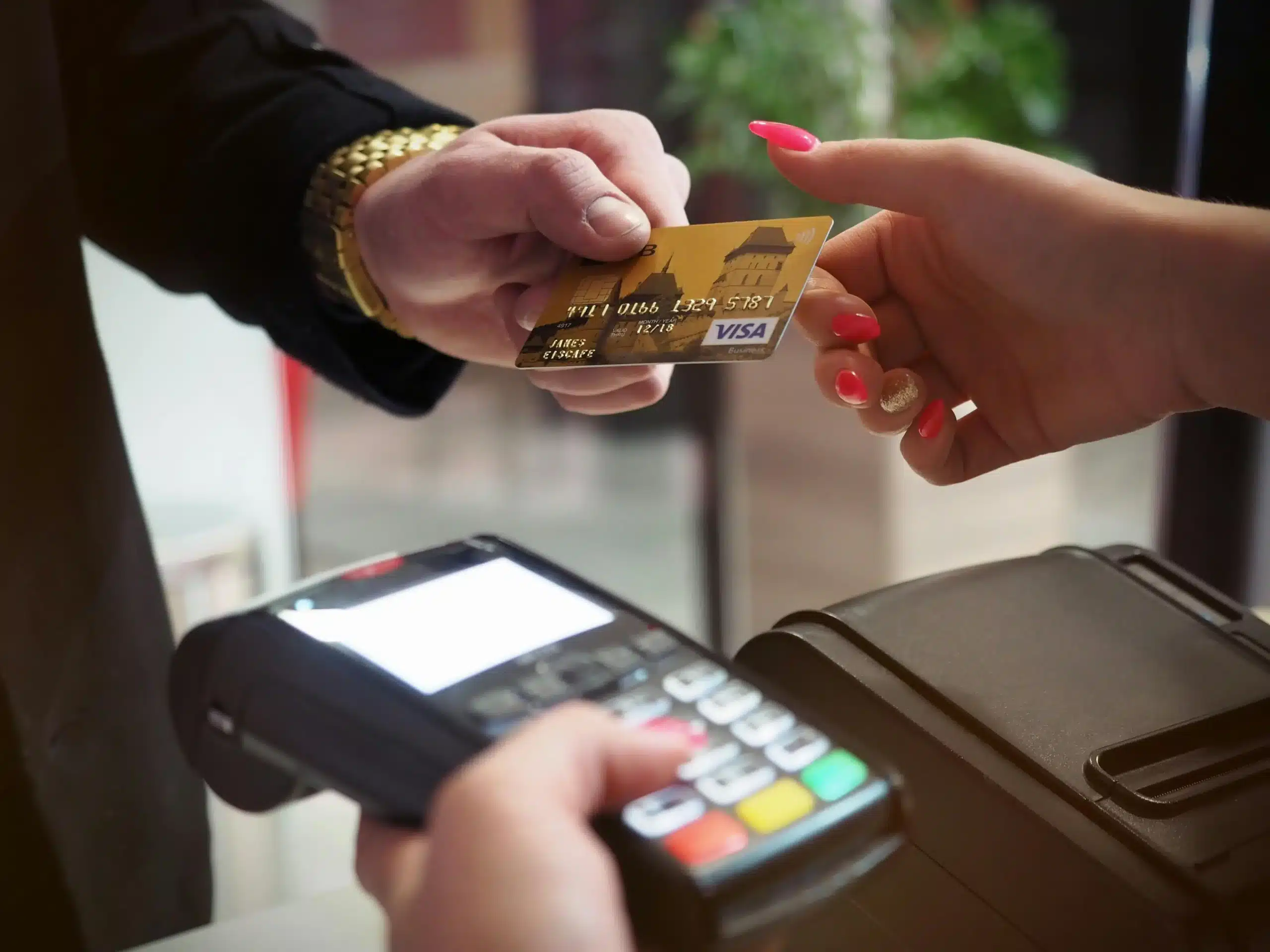PDQ machines or Card machines are commonly used in a variety of locations throughout the UK and for a very good reason. Being able to pay digitally is not something unusual anymore, instead it has become the norm. That’s why you want to learn more about PDQ machines, what types are there, and how you can differentiate cheap PDQ machines from the top tier ones.
How does a PDQ machine work?
Before you buy any PDQ machines, it’s important to understand what they do and how they work. These have a very seamless process, and it involves a few crucial steps:
- First, the cardholder will present their card and insert it into the machine or swipe over it, depending on the card or machine.
- Card info is acquired by the PDQ machine, and then it’s sent to the acquiring bank. That bank will connect to the card issuer’s bank. They do that to ensure funds are available in the cardholder’s account.
- The card issuer’s bank will either approve/decline the transaction based on funds and their own criteria.
- Once the transaction is approved, funds will be sent from the customer to the merchant. Despite having multiple steps, this process is very fast, and it usually takes just a couple of seconds.
The most common types of PDQ machines or Card machines
Every business will need a specific type of PDQ machine, depending on their use case. However, for the most part, you will encounter 3 main types of PDQ machine. Each one can be suitable for any business, but as always, it depends on what the company wants to use it for.
Mobile PDQ or Mobile Card Machine
Businesses that need to make payments on the go can’t rely on a countertop PDQ. So, they need a mobile PDQ solution. These communicate via GPRS, and they use a SIM card. Who needs mobile PDQ machines? Generally, builders, taxi drivers or any business that offers mobile services will need this type of PDQ.
Portable PDQ or Portable Card Machine
A portable PDQ is not something you take outside of a company’s premises. However, unlike a countertop unit, you can still carry it from table to table or even to another room. That’s because a portable PDQ uses Bluetooth. The wireless feature of portable card machines makes them much more convenient, which is why lots of businesses opt for this approach when they buy a PDQ machine.
Shifting from dial-up to Bluetooth is very useful, and it can be great for any type of business. Portability always helps, and it also leads to more convenience for customers too. It’s common in the hospitality world, but retailers also use this type of PDQ as well.
Countertop PDQ machines or Countertop Card Machines.
These are not portable, and usually they are also included in a large POS system. In addition, these countertop machines are connected to the internet by cable. Normally, any shop that doesn’t need a portable PDQ can opt for these machines. They are dependable, reliable, and the constant internet connection makes it easier to avoid any possible glitches.
What is a fixed-fee card reader?
If you have a smaller business with a turnover of under 15,000 GBP, it makes sense to opt for pay-as-you-go credit card readers. However, if your credit card turnover is over 2000 GBP a month, it’s better to work with a merchant services provider. Usually, the transaction fees and setup costs will vary based on the
merchant service provider and your business. You can ask for a quote and then narrow down the right option to fit your needs.
Square Reader is a good fixed free card reader since it has great features and no monthly fees. It’s one of the better options and also the first reader without a keypad for UK businesses. SumUP Air on the other hand doesn’t have refund fees, nor will it charge if you have foreign payments. It also sends SMS or email receipts and you have complete support for all kinds of cards.
Zettle Reader 2 is mobile and very easy to use. The benefit you get from this service is that it doesn’t have setup fees, nor does it come with monthly fees. And just like SumUP Air, it doesn’t have any refund fees either.
All of them are a great solution if your annual card turnover is under 15000 GBP. If it’s more than that, then you will have to shift towards a merchant services provider. It’s definitely worth giving it a try, however, since it helps deliver more convenience to your business and customers as well.
Types of payments supported by PDQ machines
Magnetic stripe
It’s the most outdated system, but it is still in use in many places within the country. You need to swipe the card through the machine, and then you have to sign the receipt. That’s a more prolonged process, and it also needs to be validated by the merchant.
NFC
NFC or near-field communication can also be a very good option for PDQ machines. The idea here is that you hold the phone near the terminal, and thus, the phone will be able to send data to the device. Amazon Pay, Apple Pay, and Android Pay are great examples of NFC payment solutions for mobile phones.
Contactless
A contactless card has an embedded chip and an antenna. That helps transmit your card data via radio frequency. The terminal receives that data, and it will automatically charge your card. If the order amount gets past a certain threshold, then the card holder will need to insert their PIN. However, contactless payments for cheaper products usually don’t need any PIN, which increases the overall convenience!
Chip and PIN
Europay, along with VISA and MasterCard, introduced the chip and PIN system in 2004, and it became mandatory 2 years later. The card authorisation data is kept on a chip found within the card. When you pay for a product, you will enter the PIN into the terminal, and it needs to match the code found on your card’s chip. If it does, the transaction is completed. Otherwise, you will need to insert the PIN again. Depending on the bank, you only have a few tries until the card is temporarily/completely blocked for security reasons.
Compare PDQ machine costs to find the perfect option.
Generally, when you use PDQ machines, you also have to look at their costs. Sure, you can buy cheap PDQ machines, but hardware costs are not the only ones to consider. There are variable payment fees related to the payment processor.
Variable payments:
- Chargeback fees appear when a cardholder will ask for a chargeback, sometimes they can be up to 20 GBP for a single chargeback.
- Merchants will charge anywhere from 2.25% to 0.35% for debit card transactions, and that goes up to 0.9% in some cases for credit card transactions.
- Aside from those, you also have authorization fees. These charges are from 1 to 3p, and they are made for every authorisation transaction.
-
Fixed fees:
- Every unit has a minimum monthly service charge, which appears if transactions are under a certain price.
- Setup fees are related to the installation of the PDQ machine. Depending on the product, they can be anywhere from 50 to 100 GBP or more. There are PDQ hardware providers that offer a more expensive PDQ price; however, installation is free.
- Terminal hire is also a cost to keep in mind, and it’s a charge for PDQ machine rental. It can be 16 to 30 GBP or more depending on the machine type.
- Lastly, we also have to consider the outright PDQ costs when you buy the machine. Sometimes, you don’t want to rent a machine, and while buying costs more, it’s the better option for most businesses.
Should you rent or buy a PDQ machine?
That’s a great question because buying a PDQ machine or renting one are the main options to consider. Of course, your budget is what matters here because buying always seems the best option if you can afford it. However, there are payment providers that will offer a PDQ machine you can use for free for a year, or they will lower the fees. So, there are certainly deals to be had. It always comes down to finding the right option and seeing what works for you.
Pros and cons of renting a PDQ machine
Renting a PDQ machine will cost up to 25 GBP a month, and sometimes, you can find great deals. However, renting also has a few downsides.
Pros:
- You don’t have to buy the machine outright. You save money now
- The company will replace your PDQ machine if it ends up damaged or not working
Cons:
- You sign a contract, and you’re locked to that vendor for a certain number of years
- Renting will end up costing you more in the long run when compared to buying outright
Pros and cons of buying a PDQ machine
The best approach when you need a PDQ machine is to just buy it outright. Keep in mind that some machines can be 200-800 GBP. It depends on how much you want to spend and what funds you have available. Here are the pros and cons!
Pros:
- Once you buy the PDQ machine, you own it
- These machines come with a warranty, which helps
- You don’t have to deal with monthly fees
Cons:
- If the machine breaks outside of the warranty period, repairs can be expensive or you have to buy a new one.
- Upgrades are not offered free of charge; you have to pay for any upgrade.
Picking between either renting or buying a PDQ machine is never an easy thing. There are always challenges to consider here, but for the most part, buying a PDQ machine is usually the better option. However, that’s not the case if you have limited funds and want complete support from the provider. That’s where renting shines, even if you will have a lengthier contract with the provider. Make sure that you study the contract and see if it fits your needs or requirements.



